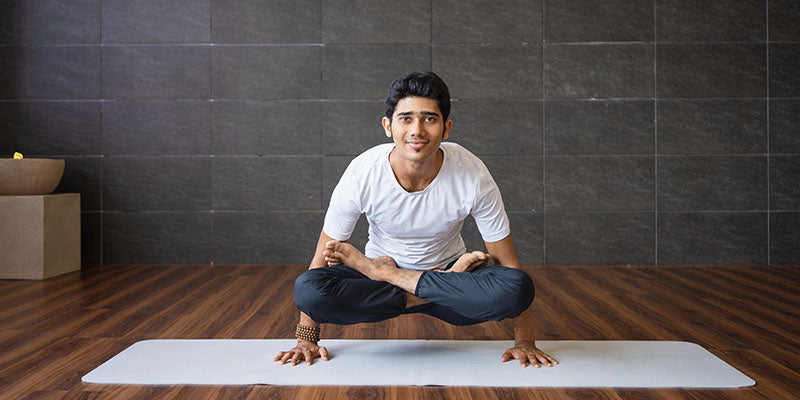The Ayurveda Approach to Stress Management

We’ve all felt stress in our day-to-day lives- Modern life is full of challenges, overwhelming responsibilities, and hassles. Stress is not an illness itself, but it can cause severe disease if it is in excess. Short bursts of stress give our minds and bodies a chance to strengthen and adapt to situations and in some cases, even focus and perform better. But stress starts interfering with your ability to live a normal life when it accumulates. The longer it lasts, the worse it is for your health and well-being. Hence Stress Management is extremely important for modern-day individuals. Ayurveda takes a holistic approach to dealing with stress and related concerns, which also includes using stress relief ayurvedic medicines and techniques.
Before we dig deeper into Ayurveda’s perspective on stress management, let’s explore the causes and potential consequences of accumulated stress and understand how stress vitiates each dosha and impacts health Read on…
Excess Stress - Causes and Consequences!
Going by the definition, stress or Sahasa is a natural reaction that is usually triggered by external unpleasant situations. In the modern world, individuals deal with a lot of stress for a long period which accumulates stress over time. The accumulated stresses of your everyday life can be caused due to high-pressure workdays, being in worrisome situations, unhealthy lifestyle or sleep behaviors, overwhelming mental pressure, and more. Consequently, high levels of stress cause Ojahksaya (loss of immunity). This leads to dosha imbalances, which increase our body’s susceptibility to various physical and mental disorders. This internal turmoil impacts our mood, sleep, digestion, and immunity.
So, when left untreated, the accumulated stress of everyday life can affect your overall health and well-being in irreversible ways — from sleep-related issues to a weakened immune system to even heart-health problems.
How Stress Vitiates Doshas and Impacts the Health of Individuals
How you deal with stress makes a big difference. Some individuals develop unhealthy habits such as comfort eating and smoking to deal with stress, while others make healthy lifestyle changes like following a healthy sleep routine and taking stress relief tablets like Blissful Sleep. Unhealthy strategies can make you feel good for some time, but these have long-term negative consequences. The best way to destress yourself is to remove the root cause. So, there’s a need to understand your stress response and the dosha imbalance that causes it and make healthy changes accordingly.

In the human body, stress levels are governed by three doshas - Vata, Pitta, and Kapha. These three doshas influence an individual’s overall mental well-being. Let’s understand how stress vitiates each dosha and creates an imbalance in the mind and body
-
Vata has cold, mobile, and erratic qualities. Vata-aggravated stress reactions usually cause anxiety or fearfulness. The individual’s erratic and fast-paced thinking could lead to feelings of anxiety and fear. While fear and anxiety are natural reactions to stress, these can cause health issues like insomnia, hypertension, etc.
-
Pitta symptoms mirror hot and mobile qualities. Pitta’s response to stress arises as anger, irritability, and impulsive behavior. The individual may also suffer from hypertension, heartburn, diarrhea, and other disorder.
-
Kaphadosha has heavy, dull, and cold qualities. When these qualities increase in the body, Kapha’s response to stress can be seen as weight gain, depression, sluggishness, lack of energy, slow metabolism, and even increased blood sugar levels
The Ayurveda Route to Find the Balance
Vitiated Vata
You can balance Vata’s cold, light, subtle, and erratic qualities by increasing the opposite qualities (you need more warmth and stillness). Avoid the build-up of stress by starting your day with a healthy routine every day.
- Manage your schedule so that you get some meditative time each day. Sitting still and breathing deeply is ideal for promoting deep relaxation.
- Eat healthy, nutrient-rich meals at regular times. This will help you feel calm and grounded.
- Get a stress relief massage or warm Abhyanga with warm oil (Vata -pacifying oil)
- Follow a healthy sleep routine. It is beneficial to go to bed at the same time. This supports your circadian rhythm and helps you get enough rest so that your mind and body relax.
Vitiated Pitta
To manage stress, seek out the opposite qualities of calm, coolness, and moderation. This balances Pitta and relieves stress
-
Take some time and calm your mind. Do some healthy Yogic practices like meditation or Pranayama before your make any decisions.
-
Take cool showers. This helps you calm and soothe Pitta.
-
Avoid consuming spicy foods (such as chilies, fried foods, and alcohol), especially in times of stress. These foods can vitiate Pitta in the digestive system and cause problems
-
Go for regular walks in nature. This is also beneficial in promoting relaxation and calming the mind
Vitiated Kapha
Relieve your day-to-day stress by staying active.
-
Keep yourself energized and warm. The easiest way is to get outdoors and walk amongst nature
-
Kapalabhati Pranayama (Shining Skull Breath) and other yoga asanas for stress relief can help you lighten heaviness in the prana region of your body.
-
Enjoy warming soups and hearty vegetable stews.
-
Avoid reaching for cold and heavy comfort foods, especially sweet foods during stressful times.

But what if you notice that you have been experiencing symptoms from more than one dosha? In such a situation, it is advisable to begin by balancing Vata. This is because most stress-related issues are caused due to Vata imbalance. Incorporating Ayurvedic herbs into your diet and practicing Abhyanga can go a long distance in reducing your stress levels.
Things You Can Do to Relieve Everyday Stress
These easy to follow, and common tips can help you deal with stress in your daily life and ensure that you stay healthy all time.
-
Practicing yoga regularly
It helps you reduce your stress and anxiety levels. You can practice different yoga asanas for stress relief such as Matsyasana (Fish pose), Vrikshasana (Tree pose), Leg up the wall pose, and more. This helps release physical stress from different points in the body. Individuals can also practice Surya Namaskar (Sun Salutation) to relieve stress.
-
Practicing different breathing techniques,especially Pranayama
It not only helps reduce your stress levels but also improves immunity and develops more resilience to stressful events.
-
Making dietary modifications
Ayurveda recommends taking the Sattvic diet. Ideally, individuals should take help from an Ayurveda expert and follow a diet plan designed particularly for their body and lifestyle habits. Ayurveda emphasizes on consumption of whole foods, which can boost immunity and improve your overall health.
-
Practicing mindful eating
This means one needs to have a healthy relationship with food. This includes appreciating the food you eat, eating it slowly and without any distractions (like using mobile phones or watching TV), and avoiding eating when you are full.
-
Using pure Ayurvedic herbs
Potent herb like ashwagandha helps balance aggravated Vata and Kapha dosha. It is a wonderful stress reliever and supports the physical, mental, and emotional well-being of individuals when taken on a regular basis. The use of
Brahmi, Cumin, and Turmeric is also beneficial.
-
Embracing Panchakarma procedures
Panchakarma procedures like Padabhagyam (massaging the feet using medicated oils) help you calm your mind and relieve stress caused due to modern life. These procedures calm the vitiated doshas, which is the root cause of the problem.
-
Getting a warm massage with Vata Oil
If you’re anxious and stressed, getting a warm, soothing massage with Vata Oil can help you destress. Maharishi Ayurveda Organic Vata oil makes a lovely abhyanga or stress relief oil for this purpose. This oil is enriched with pure extracts of Vata-pacifying herbs, that calm Vata, promote relaxation, and relieve stress.

-
Getting a warm massage with Vata Oil
Using Worry-Free regularly
Maharishi Ayurveda’s Worry-Free is available in stress relief tablets made from nature’s best herbs. This Ayurvedic formulation can be taken regularly to relieve occasional stress and anxiety. Enriched with Ayurvedic goodness of Ashwagandha, Jatamansi, Giloy satva, Shankhpushpi, Brahmi and Mukta Pishti, and more, Worry-Free is an Ayurvedic formula that calms Vata and helps relive for occasional stress and anxiety.
Conclusion
Stressful situations are inevitable in the modern era. Most of the time, stress may seem difficult to manage and keeps accumulating. Stress adversely affects the minds and bodies of individuals and increased stress can even lead to life-threatening conditions. Each dosha imbalance shows stress response in a different way and should be handled accordingly before it affects your overall health. Understanding your unique stress type helps you take appropriate action to relieve stress.
Hope you find this helpful!
Popular Posts

How to Reduce Stress That Silently Ages You?
09 May, 2025You wake up tired despite a whole night’s sleep. Your skin feels dull, your hair lacks lustre, an...
Read more
Natural Remedies to Improve Your Microbiome
02 May, 2025Bloating after meals. Constant fatigue. Mood swings that feel out of control. These common strugg...
Read more
Reverse Diabetes Naturally: Ayurvedic Insights on Prameha
02 May, 2025In a country now recognized as the diabetes capital of the world, the time-tested wisdom of Ayurv...
Read more- 1.Excess Stress - Causes and Consequences!
- 2.How Stress Vitiates Doshas and Impacts the Health of Individuals
- 3. The Ayurveda Route to Find the Balance
- 4. Things You Can Do to Relieve Everyday Stress
- 5.Getting a warm massage with Vata Oil
- 6. Conclusion





 Popular Read
Popular Read

















































